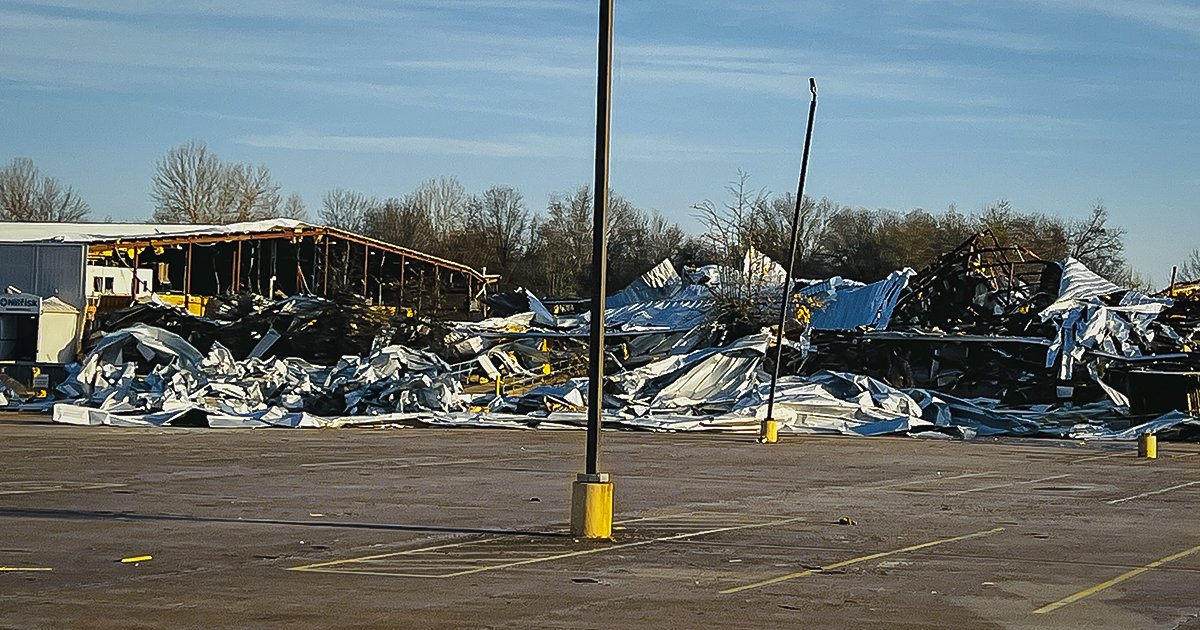The growing frequency of severe weather, including tornadoes and severe thunderstorms, is causing a more significant impact on businesses. Recovering from a disaster can be costly and time-consuming without the right insurance. But if your business prepares for disaster, you're more likely to be up and running again quickly.
The peak of tornado season is April through June or July. Experts say Spring tornadoes tend to be more severe and strike the Southeast. But disaster can strike at any time of the year, so it's best to prepare.
When a tornado strikes, it's not just potential damage to your property that you need to be concerned about. You also have to protect yourself in case your business is interrupted. That’s why Business Interruption Insurance is essential. Even if a tornado does not affect you directly, it may affect your vendors or suppliers. In this case, you may want to consider Contingent Business Interruption Insurance.
Preparing Your Business for Tornadoes
According to the Insurance Institute for Business and Home Safety, most tornadoes and severe windstorm events don't have to be catastrophic. There are many things to be done to reduce or avoid structural damage. And many of those actions are affordable.
The IIBHS has a list of Tornado Resources on its website, including suggestions to reduce the risk of flying debris.
Last-Minute Tornado Checklist
This Last-Minute Checklist is for whenever storms are forecast:
- Remove any debris surrounding your business, such as tree trimmings, to reduce the risk during high winds. Avoid placing yard debris in an area where it could clog drains during heavy downpours and potentially worsen flooding.
- Secure any fencing that appears weak or loose.
- Remove loose or unsecured outdoor objects, including outdoor furniture, signs, garbage cans, or potted plants.
Seasonal Tornado Guidance
IIBHS also has some Seasonal Guidance to reduce risks throughout tornado season significantly:
- Replace gravel and rock landscaping materials and walkways with softer materials, such as mulch or dirt.
- Trim trees and shrubbery away from buildings.
- Remove weakened sections of trees that might break off and fall onto buildings.
- Contact your utility company to trim limbs that are close to utility lines.
Other IIBHS recommendations for Preparing Your Business for Tornadoes include:
- Building or retrofitting for wind resistance
- Performing routine maintenance of building components
- Closing ALL windows and doors during a tornado
Business Insurance for Severe Weather
The Insurance Information Institute also warns that having the right business insurance is the key to survival during a tornado or other disaster.
Business insurance provides financial protection for property damaged or destroyed by a natural disaster listed in the policy. "In addition to coverage for the business's structure, it can also cover office furnishings, inventory, raw materials, machinery, computers, and other items vital to business operations," said Loretta Worters, vice president of III. Property insurance may also provide operating funds during a period when a business owner is trying to get the business back on track after a catastrophe.
Business Owners Policy (BOP)
A business owner's policy (BOP) is a standard package typically offered to business owners. It usually includes:
- Property Insurance - this typically covers buildings and items owned by the company.
- Business Interruption Insurance - This covers loss of income after a tornado or other disaster that disrupts business operations.
- Liability Protection - covers the company's legal responsibility for the harm it may cause to others due to things you and your employees do or fail to do in the court of business operations.
A Business Owners Policy does not typically cover professional liability, commercial auto insurance, workers' compensation, or health and disability insurance. These all require separate insurance policies.
Other Types of Coverage
The Insurance Information Institute also lists some other types of coverage to consider:
- Flood Insurance - this is not usually covered under a standard BOP. An important update is that FEMA has recently implemented a major overhaul of its Flood Insurance Risk grading system, Risk Rating 2.0. So be sure you are up to date with the latest information for your properties.
- Contingent Business Interruption (CBI) Insurance - this reimburses lost profits and extra expenses resulting from an interruption of business at the premises of a customer or supplier.
- Additional Property Coverage - this provides coverage for other property such as fences, signs, or awnings.
- Ordinance or Law - provides coverage to build or repair your building in compliance with updated local building codes.
- Umbrella or Excess Liability Insurance - covers claims that exceed the coverage on a general liability policy.
The III also suggests business owners should review their insurance policy annually to reflect any new changes in the business. These changes could include construction, recently purchased equipment, and updated inventory.
Disaster Recovery
The III says companies should also consider developing a disaster recovery plan. It should include:
- Finding alternative facilities, equipment, and suppliers.
- Protecting computer systems and data.
- Compiling a list of disaster-related phone numbers and addresses.
- Training employees
Meanwhile, IBHS has published a Severe Weather and Emergency Preparedness and Response Planning Toolkit. Its purpose is to help keep small businesses "open for business." The toolkit includes a stand-alone guide and a customizable checklist.
IBHS has also created a Business Continuity Program called OFB-EZ®, which focuses on recovering after the initial emergency.
Disaster Declarations
If federal officials declare a disaster after a storm, you may qualify for some federal assistance. That could include a FEMA grant, SBA disaster loan, or tax breaks for uninsured casualty losses. Visit DisasterAssistance.gov or a FEMA disaster recovery center to learn more about benefits and apply for aid.
Farris Insurance Can Help
Farris Insurance Agency of Springdale is your source for Business Insurance. We serve businesses and people across Northwest Arkansas, including Springdale, Fayetteville, Bentonville, Rogers, and Benton and Washington Counties. Contact Farris Insurance at (479) 756-6330.


 Statement on the Springdale Tornado
Statement on the Springdale Tornado